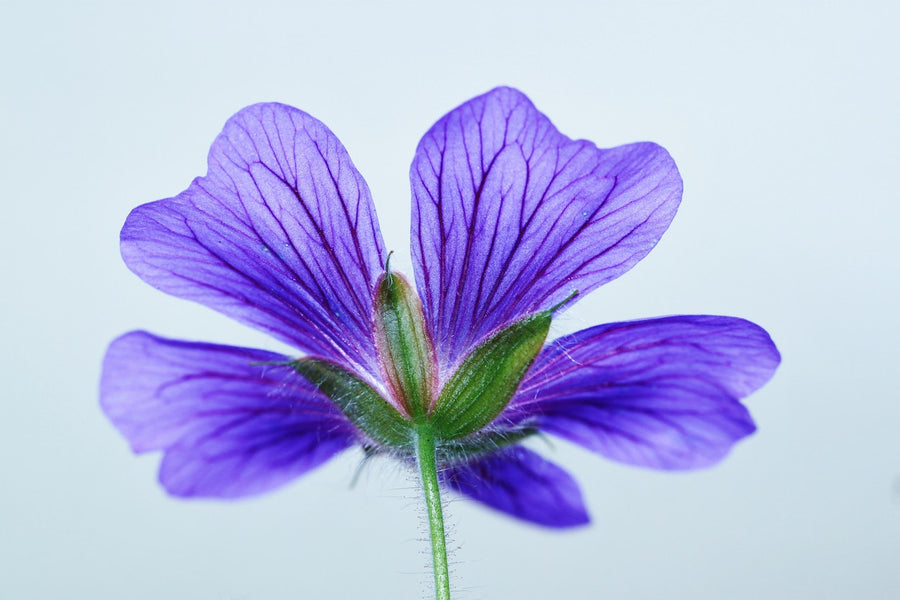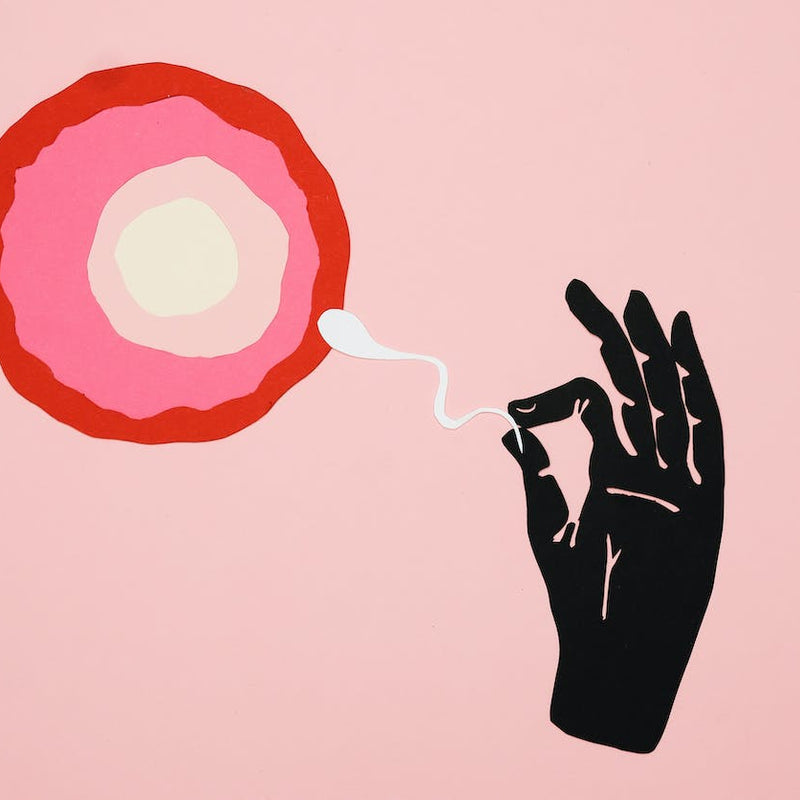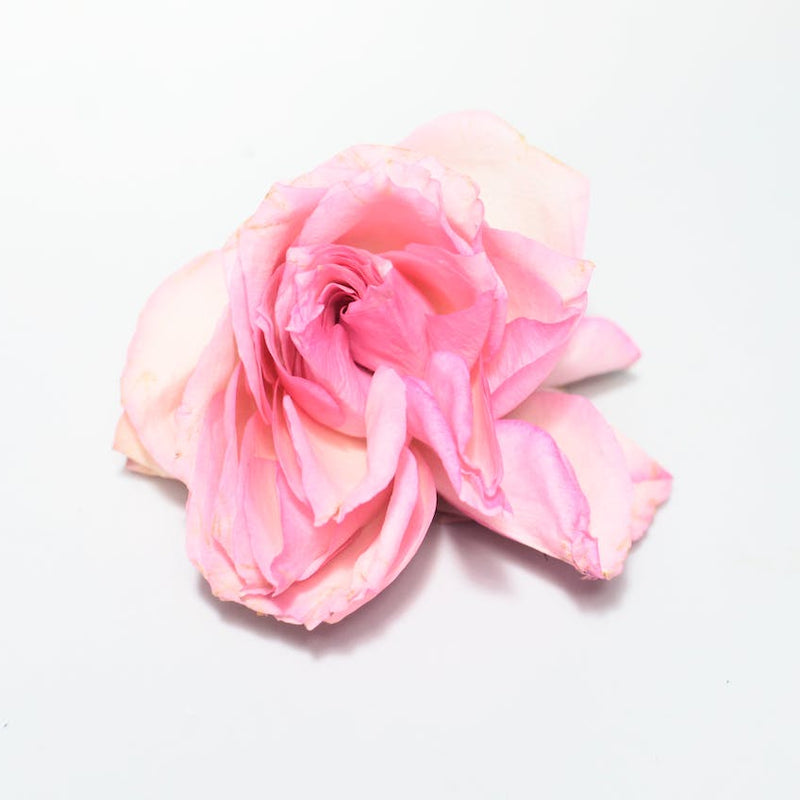A Guide To The Vaginal Flora

What Impacts Vaginal and Vulvar Health?
Many factors can impact the health of the vagina and vulva. In case you need a reminder, the vagina is the muscular canal that extends from the outside of the female genital area to the cervix. [1] The vulva is the outside of the female genital area, including the labia, mons pubis, clitoris, and opening of the urethra and vagina. [2] The health of the vulva and vagina may be impacted by [1-2]:
- Sexual activity: Sex has the ability to disrupt vaginal pH, transmit infections, or cause injury.
- Health conditions and treatments: Conditions such as endometriosis, pelvic inflammatory disease (PID), and others may lead to scarring, painful sex, or uncomfortable symptoms. Some medications or treatments can also lead to a change in vulvar or vaginal health.
- Hormone levels: Our hormones play a big role in many of our bodily processes and organs, including the genitals. Hormone levels can impact the vagina, leading to changes in discharge, the vaginal lining, etc.
- Pregnancy and childbirth: The vagina may withstand some injury and changes during pregnancy and delivery, due to hormonal changes, tearing, incisions, etc.
- Hygiene: Certain hygiene products can interfere with vaginal and vulvar health. Be sure to avoid using any products in or around the genitals unless instructed by a healthcare provider.
What Is The Vaginal Flora?
The vaginal microbiome, often called the vaginal flora, refers to the naturally occuring bacteria found in the female genital tract. [3] This bacteria is important for vaginal health and protects against unwanted organisms or substances. The vaginal flora is also what maintainins a healthy vaginal pH. [3] The microbiome can be found all throughout the body, including the gut, skin, mouth, and elsewhere.
Vaginal Flora and Fertility
The vaginal flora can impact fertility in certain circumstances. Research shows that disruptions in the normal vaginal flora may be linked to miscarriages as well as complications of the reproductive tract that may decrease someone’s ability to conceive. [4] If you are ever experiencing any concerning symptoms, be sure to speak to your healthcare provider.
Vaginal Flora Imbalance
It’s normal for the vaginal flora to change throughout someone’s life, including menstruation and pregnancy. However, some disruptions in the vaginal flora can cause negative health consequences. An imbalance in the vaginal microbiome can be caused from sexual activity, hygeine products, medications, douching, and more. [5] Disruptions of the normal vaginal flora have been linked to miscarriages, infections, PID, and other complications. [4] Many of these conditions can have a negative impact on fertility and quality of life. Most often, a disruption in the vaginal flora will lead to bacterial vaginosis (BV). [3]
Bacterial Vaginosis
Bacterial vaginosis is the most common vaginal condition occuring in people ages 15 to 44 and is often the first sign of an imbalanced vaginal microbiome. [3,6] BV is not a sexually transmitted infection, but can cause similar symptoms. BV is most often tied to sexual activity, douching, or antiobiotic use. [6] Primary symptoms include abnormal vaginal discharge with or without odor pain during sex, vaginal irritation, and painful urination.
How to Balance The Vaginal Flora
Adequate care of the vulva and vagina is very important for preventing infections, discomfort, and in some cases can support improved fertility outcomes and maintain a healthy vaginal microbiome. [1-3] Here are some of the best practices for vaginal and vulva care.
Proper Washing
The best way to wash the vulva is by using warm water, and avoiding douches, or other harsh products. [1-2] The vaginal canal is self cleaning and does not need to be washed unless told otherwise by a healthcare provider. [1-2] Be cautious when using any scented products in or around the genitals.
Comfortable Clothing
Avoid wearing any undergarments that are extremely tight or made out of synthetic fibers. Some fibers can trap in heat and moisture which may contribute to infections, irritations, or imbalanced pH. [2] Wear cotton underwear that fits comfortably and be sure to wash undergarments thoroughly. In some cases, certain laundry products can cause irritation. [2]
Probiotics
Probiotics are live bacteria found in foods and supplements that support the microflora. Some research shows that taking probiotics may improve vaginal or endometrial health by lowering pH values and improving the amount of “good” bacteria found in the microbiome. In turn, taking probiotics may have beneficial effects on fertility and sexual health. [7] Learn the difference between prebiotics and probiotics.
Avoid Certain Hygiene Products
As previously mentioned, you should avoid using any feminine sprays, washes, harsh soaps, deodorants, etc in or near the genitals. In some cases, sanitary pads may also lead to irritation of the vulva. [2] Speak to your healthcare provider about the use of any hygiene products.
Safe Sex
Practicing safe sex is another way to support vulvar and vaginal health. Depending on your family planning goals, using condoms or dental dams can be useful for preventing sexually transmitted infections. [1-2] Having fewer sexual partners can decrease your risk of getting BV and other infections. [3]
Use pH Friendly Lube
Some lubricants have the ability to throw off vaginal pH or disrupt the vaginal flora. [8] The vagina has a natural pH of 4.5 that can be altered by the use of certain products or ingredients. While it is normal for the vaginal pH to be slightly raised at certain times, it’s important to stick to a lubricant that is more neutral or acidic than basic. Studies have shown that ingredients such as synthetic fragrances, parabens, and glycerin can have negative effects on vaginal and vulvar health. [9-11] Read more about Lube and Vaginal Health
In addition to these best practices, it’s important to see a healthcare provider at least once a year for a pelvic exam and other general checkups. [12] If you do have any concerning symptoms or questions about your vaginal health, don’t be afraid to reach out to a professional.
Support Your Health With Natalist
If you are attempting to conceive, pregnant, or newly postpartum, you likely have a lot of questions about your health and may be experiencing some intense changes. Vaginal conditions naturally change as we age and experience menstrual cycles and pregnancy. If you are looking for products that are evidence-backed and formulated with fertility and pregnancy in mind, you’ve come to the right place. Shop fertility-friendly lubricant, cycle support products, and more on the Natalist website, or you can read more about intimacy on the Natalist blog.
References:
- Vagina: What's typical, what's not. Mayo Clinic. December 2022. URL. Accessed August 2023
- Vulvar Care. Cleveland Clinic. March 23 2018. URL. Accessed August 2023.
- Chen X, Lu Y, Chen T, Li R. The Female Vaginal Microbiome in Health and Bacterial Vaginosis. Front Cell Infect Microbiol. 2021;11:631972. Published 2021 Apr 7. doi:10.3389/fcimb.2021.631972
- Lamont RF, Sobel JD, Akins RA, et al. The vaginal microbiome: new information about genital tract flora using molecular based techniques. BJOG. 2011;118(5):533-549. doi:10.1111/j.1471-0528.2010.02840.x
- Lewis FMT, Bernstein KT, Aral SO. Vaginal Microbiome and Its Relationship to Behavior, Sexual Health, and Sexually Transmitted Diseases. Obstet Gynecol. 2017;129(4):643-654. doi:10.1097/AOG.0000000000001932
- Kairys N, Garg M. Bacterial Vaginosis. [Updated 2022 Jul 4]. In: StatPearls [Internet]. Treasure Island (FL): StatPearls Publishing; 2023 Jan-. Available from: https://www.ncbi.nlm.nih.gov/books/NBK459216/
- Blancafort C, Llácer J. Can probiotics enhance fertility outcome? Capacity of probiotics as a single intervention to improve the feminine genital tract microbiota in non-symptomatic reproductive-aged women. Front Endocrinol (Lausanne). 2023;13:1081830. Published 2023 Jan 19. doi:10.3389/fendo.2022.1081830
- Fashemi B, Delaney ML, Onderdonk AB, Fichorova RN. Effects of feminine hygiene products on the vaginal mucosal biome. Microb Ecol Health Dis. 2013;24:10.3402/mehd.v24i0.19703. Published 2013 Feb 25. doi:10.3402/mehd.v24i0.19703
- Wilkinson EM, Łaniewski P, Herbst-Kralovetz MM, Brotman RM. Personal and Clinical Vaginal Lubricants: Impact on Local Vaginal Microenvironment and Implications for Epithelial Cell Host Response and Barrier Function. J Infect Dis. 2019;220(12):2009-2018. doi:10.1093/infdis/jiz412
- Nicole W. A question for women's health: chemicals in feminine hygiene products and personal lubricants. Environ Health Perspect. 2014;122(3):A70-A75. doi:10.1289/ehp.122-A70
- Parabens Fact Sheet. Centers for Disease Control and Prevention. April 2017. URL. Accessed August 2023.
- Pelvic Exams. FAQ 518. American College of Obstetricians and Gynecologists. June 2022. URL.
Sign up for 15% off your first order!
Insider access, exclusive deals, and OBGYN insights!
Reach Out, We're Here
Have questions about your order or products? For the speediest answer, check out our FAQ section. Need something else? Come find us below.
Customer Support
support@natalist.com
Press Inquiries
media@everlyhealth.com
Business & Partnerships
team@natalist.com
Affiliates + Influencers
team@natalist.com
Job Openings
Careers Page






















